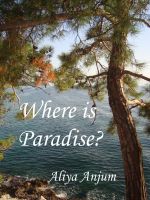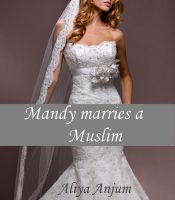1.) Christopher, can you tell us a little about your road to becoming a fiction writer?
I’m not someone who knew “I want to be a writer” at age eight. I didn’t write diaries or pen notes to J.D. Salinger. I went to a lot of movies as a kid, and I started making Super 8s in high school, so I wanted to make movies, which I pursued in college.
I also wasn’t a fan of English classes or writing essays. When I had to write a college essay on my hobby — such a boring and stupid idea — I got pissed off, and I made my hobby kicking chunks of built-up snow off of car fenders (I’m from Minnesota). I explained the beauty of chunk kicking. I went into the various kicks and goals. My rage turned into humor. The professor read it aloud in his usual monotone, but the class roared. I thought I was getting an F but going down in flames. He gave me an A. That gave me my first taste for writing, and I took three creative writing classes after that and learned how to write screenplays, too.
After college, I moved to Los Angeles and was making a short film in 35mm when the fire department shut me down for not having a permit. I lost my life savings — a couple thousand dollars — and after that I thought I’d be a writer only. I didn’t need a permit for that.
2.) On your blog, a recent post titled "Success, AWP and a Growing Huge Problem" talks quite extensively about the division between the book and e-book worlds. In your opinion, what will the future hold for book publishers, writers, etc.?
Two months ago, I might have told you of the beautiful democratization of the publishing industry where authors didn’t need agents or publishers anymore; authors could do it themselves. While most self-publishers haven’t done a great job of it because they haven’t researched what is required for a good book, some new and independent authors such as
Darcie Chan have made thousands of dollars a week. Then I went to the AWP Conference and wrote
the post you mentioned.
At AWP, I realized that colleges still exclusively taught traditional publishing, and the awards went to those writers with books in print. That may change. Someone will eventually give big prize money to eBooks.
While I know eBooks will grow in popularity, it won’t mean the popular ones will be self-published or from small presses. When indie authors first made headway with eBooks, a number of the eBook bestsellers as listed by the New York Times and USA Today featured self-published books or those from small presses. I looked the other day, and every single book of the top twenty were from big publishers.
Big publishers know how to market, and when they have a great book, such as Chad Harbach’s
The Art of Fielding, a great agent and publisher leads it to the green pastures of success. To see that point of view, read
How a Book is Born by Keith Gessen.
Still, I’ve imagined a way that indie publishers, small publishers, and big publishers all find a large chunk of the marketplace. I’m guessing, though, big publishers will learn what small ones are doing and then do it better.
3.) What are some of the differences you have found between journalism writing and writing fiction?
Journalism and writing fiction are more similar than some people imagine. Journalism taught me grounding the reader in “Who, what, where, when, why, how?” Those all are great elements for fiction. Set the scene. Create action. What people do reveals their character.
While I was studying fiction and playwriting in a graduate program at USC, I took a class in magazine writing at UCLA Extension, and I started getting freelance work right away. I published extensively while still in school. Getting used to deadlines has been extremely helpful in writing fiction because I can give myself deadlines that I meet.
Still, what’s great about fiction over journalism is you can get deeply inside a character’s head and show the world through a unique set of eyes. I’ve come to see that being a fiction writer is akin to being a philosopher. I never set out with any agenda, but now after five books, I’m discovering—and some critics are showing me—that I have certain perceptions on life.
4.) Who are some of your favorite writers?
The first time I read voraciously was my junior year in college, much of which I spent in Denmark. I ended up with a lot of time on my hands because I knew no one at first and everyone was speaking a strange language I’d never heard. I found the Roskilde library and the English language shelf and came to love Ernest Hemingway, F. Scott Fitzgerald, and Kurt Vonnegut then. I already loved J.D. Salinger, and to this day his
Nine Stories remain perfect. Tim O’Brien’s
The Things They Carried is a touchstone for me, and I love all John Irving.
In the 90’s, after I started teaching creative writing at CalArts, I was asked to teach English at Santa Monica College. My main goal was not to intimidate my students the way I’d felt by most of my former English professors. I started using contemporary novels, split equally by male and female authors. Thus, I’ve come to find a lot of new authors. My favorites now include Margaret Atwood, Jennifer Egan, Jhumpa Lahiri, Janet Fitch, Sara Gruen, Alice Walker, Michael Ondaatje, and Michael Cunningham. In fact, I’ve made an
Amazon Listmania list on the novels that my students have loved enthusiastically.
As for indie authors, I adore
Waiting for Spring by R.J. Keller,
Lord Vishnu’s Love Handles by Will Clarke (who’s a mainstream author now),
Ransom Seaborn by Bill Deasy, and
The Mill River Recluse by Darcie Chan (who just signed with Ballantine Books). There are many others I’m leaving out.
5.) Okay, I've seen a couple of pictures of you, some with facial hair and some without. Spill it. What's the story with the mustache?
First of all, I had my mustache since the 70’s. It was part of my self-image. Then I saw Tom Selleck’s picture last year, and he looked dated — stapled to the 70’s, which may be his age now, too. His mustache looks unnaturally dark. I didn’t want to be that guy. I shaved as fast as I could.
6.) You are eating at a restaurant when Steven Spielberg walks in. After a few moments he takes notice of you and walks over to your table. He obviously recognizes you. Then he informs you he recently read your latest work and says he enjoyed it immensely. There's no mention of a working collaboration, but he is obviously enthused by what he read. What is your response?
I’d say thanks, that it’s an honor to meet him, and that we have a friend in common, David Franzoni, who worked with Spielberg as a writer and producer on
Amisad and
Gladiator -- two of my favorite films. I’d offer Spielberg another of my books, and tell him he and Kate are welcome to a barbecue on my new patio.
***
I also say thanks to you, Ty. Your questions were great, and this has been fun. My novel
Love At Absolute Zero happened to be the
Romance of the Week on Kindle Nation Daily recently. Think of the book as an unusual contemporary romance where a young top physicist, who just earned tenure at the University of Wisconsin, is determined to find his soul mate in three days using the Scientific Method. Chaos ensues. That’s the book Spielberg hypothetically read. It’s perfect for a movie.










































